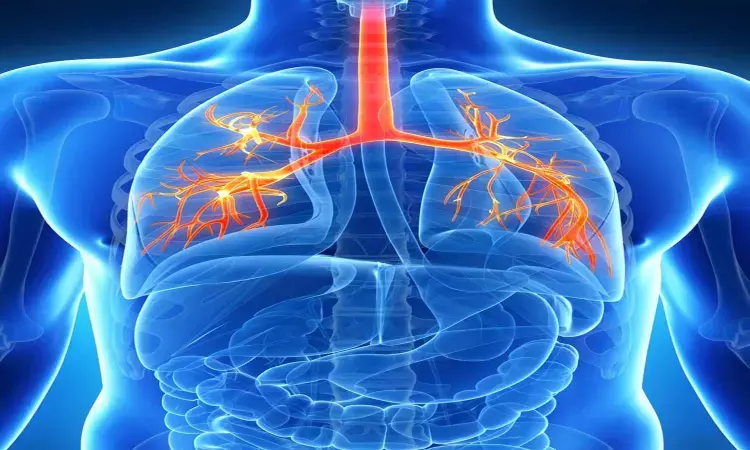- Home
- Medical news & Guidelines
- Anesthesiology
- Cardiology and CTVS
- Critical Care
- Dentistry
- Dermatology
- Diabetes and Endocrinology
- ENT
- Gastroenterology
- Medicine
- Nephrology
- Neurology
- Obstretics-Gynaecology
- Oncology
- Ophthalmology
- Orthopaedics
- Pediatrics-Neonatology
- Psychiatry
- Pulmonology
- Radiology
- Surgery
- Urology
- Laboratory Medicine
- Diet
- Nursing
- Paramedical
- Physiotherapy
- Health news
- Fact Check
- Bone Health Fact Check
- Brain Health Fact Check
- Cancer Related Fact Check
- Child Care Fact Check
- Dental and oral health fact check
- Diabetes and metabolic health fact check
- Diet and Nutrition Fact Check
- Eye and ENT Care Fact Check
- Fitness fact check
- Gut health fact check
- Heart health fact check
- Kidney health fact check
- Medical education fact check
- Men's health fact check
- Respiratory fact check
- Skin and hair care fact check
- Vaccine and Immunization fact check
- Women's health fact check
- AYUSH
- State News
- Andaman and Nicobar Islands
- Andhra Pradesh
- Arunachal Pradesh
- Assam
- Bihar
- Chandigarh
- Chattisgarh
- Dadra and Nagar Haveli
- Daman and Diu
- Delhi
- Goa
- Gujarat
- Haryana
- Himachal Pradesh
- Jammu & Kashmir
- Jharkhand
- Karnataka
- Kerala
- Ladakh
- Lakshadweep
- Madhya Pradesh
- Maharashtra
- Manipur
- Meghalaya
- Mizoram
- Nagaland
- Odisha
- Puducherry
- Punjab
- Rajasthan
- Sikkim
- Tamil Nadu
- Telangana
- Tripura
- Uttar Pradesh
- Uttrakhand
- West Bengal
- Medical Education
- Industry
Brensocatib improves clinical outcomes in bronchiectasis patients: NEJM

Delhi: The use of brensocatib was shown to improve clinical outcomes in bronchiectasis patients, in a 24-week trial. The findings of the study are published in the New England Journal of Medicine. Brensocatib, an oral reversible inhibitor of dipeptidyl peptidase 1 (DPP-1), helped in reducing neutrophil serine protease activity.
Bronchiectasis patients experience frequent exacerbation that are thought to be linked to neutrophilic inflammation. In bronchiectasis patients, the quantity and activity of neutrophil serine proteases, including neutrophil elastase, are increased in the sputum, and are increased further during exacerbation.
James D. Chalmers, Ninewells Hospital and Medical School, Dundee (J.D.C.), and colleagues performed phase 2, randomized, double-blind, placebo-controlled trial. It included 256 patients with bronchiectasis who had had at least two exacerbations in the previous year. They were randomized to receive placebo (n=87), 10 mg of brensocatib (n=82), or 25 mg of brensocatib (n=87) once daily for 24 weeks in the ratio of 1:1:1.
The time to the first exacerbation (primary end point), the rate of exacerbations (secondary end point), sputum neutrophil elastase activity, and safety were assessed.
Key findings of the study include:
- The 25th percentile of the time to the first exacerbation was 67 days in the placebo group, 134 days in the 10-mg brensocatib group, and 96 days in the 25-mg brensocatib group.
- Brensocatib treatment prolonged the time to the first exacerbation as compared with placebo.
- The adjusted hazard ratio for exacerbation in the comparison of brensocatib with placebo was 0.58 in the 10-mg group and 0.62 in the 25-mg group.
- The incidence-rate ratio was 0.64 in the 10-mg group, as compared with placebo, and 0.75 in the 25-mg group, as compared with placebo.
- With both brensocatib doses, sputum neutrophil elastase activity was reduced from baseline over the 24-week treatment period.
- The incidence of dental and skin adverse events of special interest was higher with the 10-mg and 25-mg brensocatib doses, respectively, than with placebo.
"In this 24-week trial, reduction of neutrophil serine protease activity with brensocatib in patients with bronchiectasis was associated with improvements in bronchiectasis clinical outcomes," concluded the authors.
"Phase 2 Trial of the DPP-1 Inhibitor Brensocatib in Bronchiectasis," is published in the New England Journal of Medicine.
DOI: https://www.nejm.org/doi/full/10.1056/NEJMoa2021713
Dr Kamal Kant Kohli-MBBS, DTCD- a chest specialist with more than 30 years of practice and a flair for writing clinical articles, Dr Kamal Kant Kohli joined Medical Dialogues as a Chief Editor of Medical News. Besides writing articles, as an editor, he proofreads and verifies all the medical content published on Medical Dialogues including those coming from journals, studies,medical conferences,guidelines etc. Email: drkohli@medicaldialogues.in. Contact no. 011-43720751


